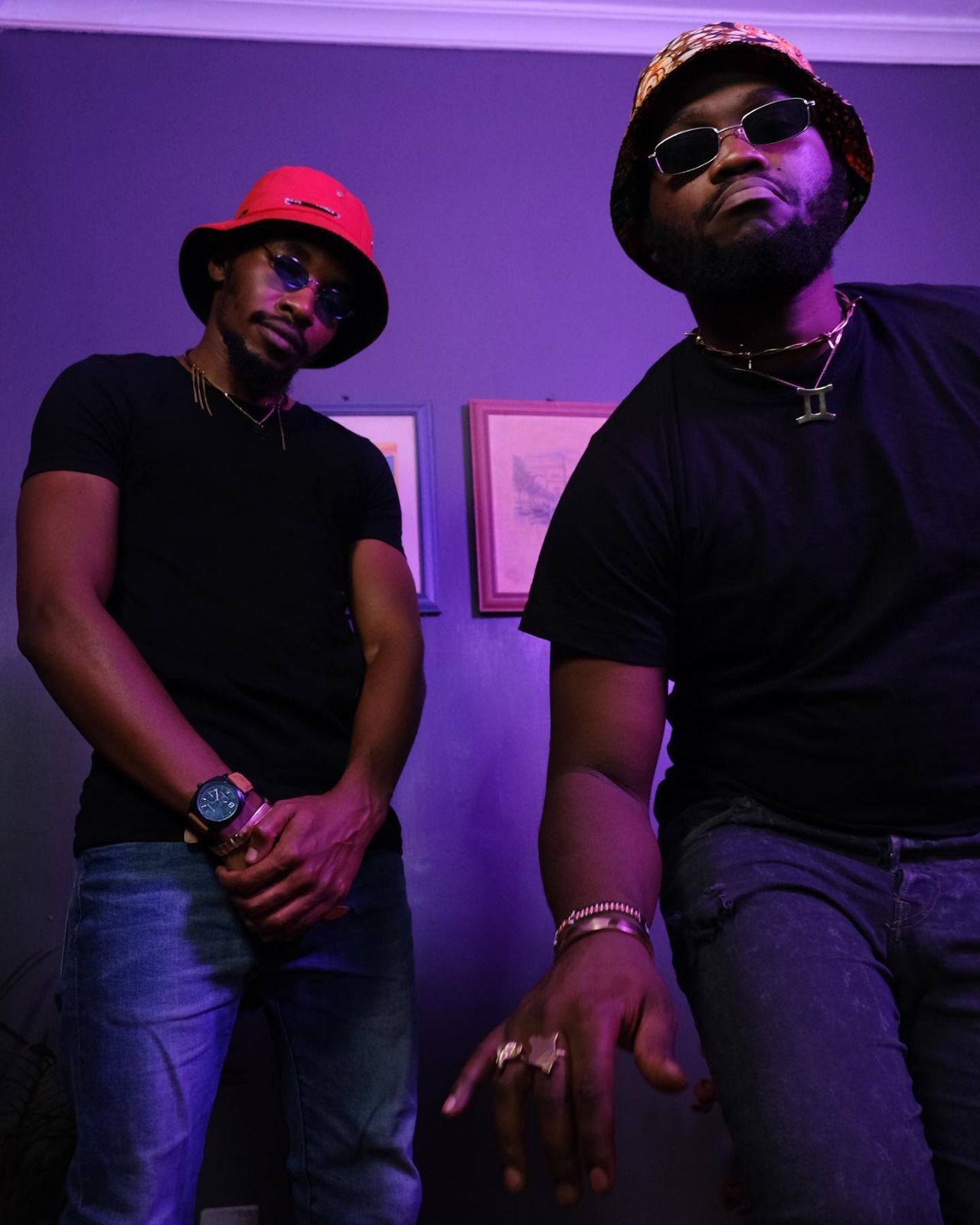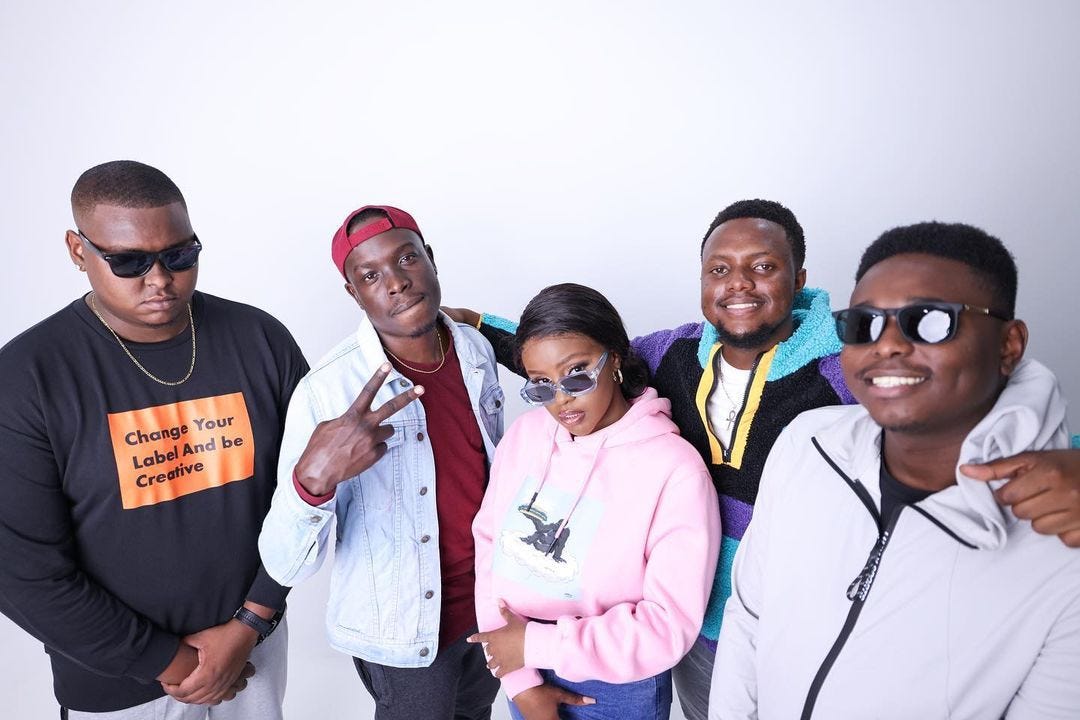Legacy media has for a long time been the mafia when anything concerned to relaying information is involved. Bossing the scene when it comes to entertainment be it print or broadcast.
For a long time now, entertainment offered by the media stations has been the same. Archaic programming with regurgitated scripting. And with this we have not factored in the endless advertisements that come almost every five minutes
But for a moment now, looks like there is a new sheriff in town. And by this, I mean the evolution that has seen the rise of podcasts. Podcasting has managed to gain traction amongst Kenyans more so the youths. With a demography that sees nothing as indispensable, radio together with its counterparts have seen a dip when it comes to their consumption.
The rise of podcasting in Kenya is transforming the entertainment industry, offering a fresh platform for creative voices that often go unheard in traditional media. With increasing internet penetration and presence of platforms like Spotify highlighting Kenyan creators, podcasts are providing a space for candid conversations on everything from pop culture and lifestyle to politics and entrepreneurship.
This shift is reshaping how content is consumed, allowing listeners to engage with diverse topics on their own terms. As more Kenyan creators explore the medium, podcasting is becoming a key player in the country’s rapidly evolving entertainment landscape.
In 2024, podcasting continues to grow in popularity in Kenya, attracting listeners across various age groups. Most Kenyan podcast listeners are Millennials (25-40) and Gen Z (18-24), who dominate the landscape.
Podcasts focusing on topics like comedy, current events, and social issues have particularly captured younger audiences. Gen Z listeners are highly engaged, with nearly 80% discovering podcasts through platforms like YouTube and TikTok, and many tuning in for mental health content and social issues.
Some of the most popular Kenyan podcasts in 2024 include Iko Nini, Mic Cheque, The Messy In Between, Legally Clueless, The Sandwich Podcast, and The Joy Ride. These shows cater to a wide array of topics from entertainment to personal growth, resonating strongly with younger, tech-savvy listeners.
The daily podcasting habits in Kenya also reflect global trends, where multitasking is common people often listen while commuting, working out, or doing household chores.


To debunk this, I had a chat with Andy Young, half of the duo from the Chop shop podcast, and Tony Kibet (Tonio Kibz) from the Sandwich Podcast. The two are a prominent voice in Kenya’s podcasting scene, bridging traditional radio with the dynamic world of podcasting.
Known for their wit and insightful takes, they both engage listeners with authentic conversations that spotlight Kenya’s cultural pulse. Their work captures the evolving tastes of audiences craving depth, humour, and relevance in Kenyan entertainment.
“The audience has ever been growing as more people are drawn to long format style conversation that they can follow uninterrupted. The variety of content and subject matter also means that there’s something for everyone,” he says.
Raw and unfiltered content is rapidly defining Kenya’s podcasting scene, appealing to listeners hungry for authenticity and genuine voices. Podcasters are breaking away from polished narratives, opting instead for candid conversations that delve into societal issues, personal experiences, and everything in between. This trend reflects a shift in audience preferences, with Kenyans seeking relatable, unvarnished storytelling that resonates with real-life perspectives and the diversity of their daily experiences.
“Podcasts have an edge over traditional media because they’re raw, unfiltered, uncensored, not interrupted by many ads, and topics and conversation are explored more fully.” Andy says.
Unique cultural fusion is something to behold when it comes to Kenyan entertainment space. Podcasts are not left behind. With the inclusion of sheng language, it has connected hosts and audiences.
“More podcasts, both established and coming up have learned use language that authentically expresses their feelings and coherently states their views to their audiences. This has seen the rise of use of sheng in most podcasts as opposed to before when most only concentrated in use of English and Kiswahili.” Says Tony.
Numbers are a big player when it comes to entertainment. Podcasts in Kenya are gaining ground on traditional media, particularly when it comes to audience engagement and reach.
With impressive streaming numbers and watch hours on platforms like YouTube, they’re captivating audiences through fresh perspectives and longer, more personal conversations.
This shift indicates a growing preference for on-demand content that suits modern listeners’ lifestyles, as well as the potential for podcasts to rival, if not surpass, mainstream media consumption.
“About the audience in podcasting and the numbers involved, you can actually know how many people have listened. You can get, accurate data as compared to TV radio stations.”
Entertainment has boundaries but that does not apply when it comes to podcasting more so with the audience, they tend to appeal to subscribe to no holds barred conversations. Kenyan podcasts are challenging societal norms by fostering unfiltered discussions on topics often sidestepped by mainstream media. With a freedom to explore controversial, complex, and culturally sensitive issues without fear of censorship, podcasts are providing a platform for voices rarely heard. This independence allows hosts and guests to discuss everything from politics to social justice openly, encouraging audiences to question the status quo and engage with diverse perspectives and fresh ideas.
“Podcasting, just like any new emerging trend, will challenge the old systems and the old way of doing things. More people with information can easily share it without the fear of losing their jobs or losing advertisers. The more access people have to this information has brought about enlightenment and increased people’s levels of empathy and understanding. There’s more light shed on more things, so people are making more informed decisions for themselves, instead of buying into narratives across society.”
As much as anything goes when it comes to conversations in podcasts, reshaping education and offering audiences accessible insights on culture, politics, and social issues through engaging, relatable conversations is not left behind.
“It actually plays a really big role. Mainly because we are talking about stories and expressions of how we feel and how we see things. For example, I might say a story in a way that I felt it and I could actually be telling someone about something that I read about or something for the first time. And as much as I entertained them, at the same time, you are learning something from me because I may have talked about something concerning the state of the nation today but then how we put it in our discussion, it's entertaining. So, the point where you educate as you entertain is really big step.”
In Kenya’s fast-evolving podcasting space, staying fresh and engaging is key to retaining audiences. Podcasters are constantly innovating bringing in diverse guests, experimenting with storytelling styles, and tackling trending topics that resonate with listeners.
By blending humour, personal stories, and current issues, they keep content relatable and dynamic. This adaptability not only sets podcasts apart from traditional media but also reflects the pulse of Kenyan culture and contemporary conversations.
“We keep our content fresh by staying true and authentic to our individual selves and experiences. Bringing them together creates a unique product every single time because we allow ourselves to be vulnerable,” Andy says.
Tony also reiterates by saying that sharing of their own personal life experiences and staying off scripting has kept their community intact and engaged.
Live shows are adding an exciting dimension to Kenya’s podcasting scene, connecting hosts and fans in real-time. Pioneered by the Sandwich Podcast, live events have created a new way for podcasters to engage directly with their audiences.
“So, yeah, we actually pioneered the concept of live recordings and shows. Our first one, which was very successful,” Tony says.
Following in their footsteps, podcasts like the 97’s podcast by the 3 Men Army are now hosting live shows as well, proving that Kenya’s podcasting community is eager to turn digital conversations into in-person experiences.
“Other podcasts are also trying to get, to do shows because at the end of the day, what the show does to you, it gets to show you that other than the numbers that you see every time after posting your podcast, are that the numbers now become real because you get to see real people on ground.” He adds.
While Kenya’s podcasting scene is thriving, podcasters face significant challenges that test their resilience and creativity. Limited access to resources, competition for audience attention, create obstacles to growth and accessibility. Monetization also remains a struggle, as ad revenue and sponsorships can be difficult to secure.
“Some of the challenges we face as podcasters include advertising. Advertisers are slowly opening up to exploring new avenues to collaborate because of the risk of the unknown. They have no guarantees yet that this vibrant and dynamic avenue will give them what they want, so not so many are willing to take the risk. Eventually, monetizing the product becomes more challenging. We focus more on creating a quality product and allowing people who are drawn to it to engage and work together with us. Our main focus is giving the consumer value, everything else falls into place.” Andy says.
He adds that maintaining the authenticity, consistency, quality, and also improving it is challenging as well because you’re dealing with different people who come from different places.
“Getting together a group of people with a shared vision and goal, and maintaining it too, for many podcasters is usually a challenge. This is why we are intentional about making sure that we are at our best, giving nothing but the best to our audience.” He says.
Despite these hurdles, Kenyan podcasters continue to push forward, driven by passion and a commitment to amplifying authentic voices in digital media.
As the Kenyan podcasting landscape continues to evolve, it remains a vibrant space for authentic expression, community engagement, and cultural reflection. With innovative formats, live shows, and a commitment to challenging societal norms, podcasters are not only entertaining but also educating and inspiring their audiences.
The journey of Kenyan podcasts is just beginning, and as they navigate the challenges ahead, their impact on the media landscape and society at large will undoubtedly grow, shaping the future of storytelling in Kenya.






My people!! Yes indeed.
The silent conversations are now been spoken very publicly and we are all enjoying it.